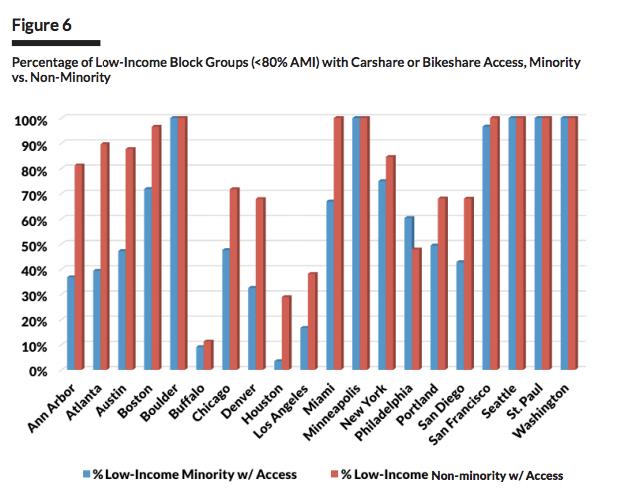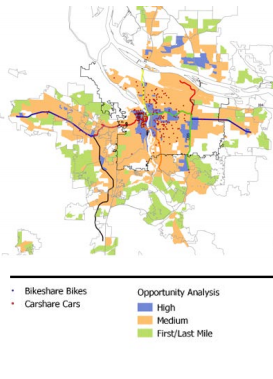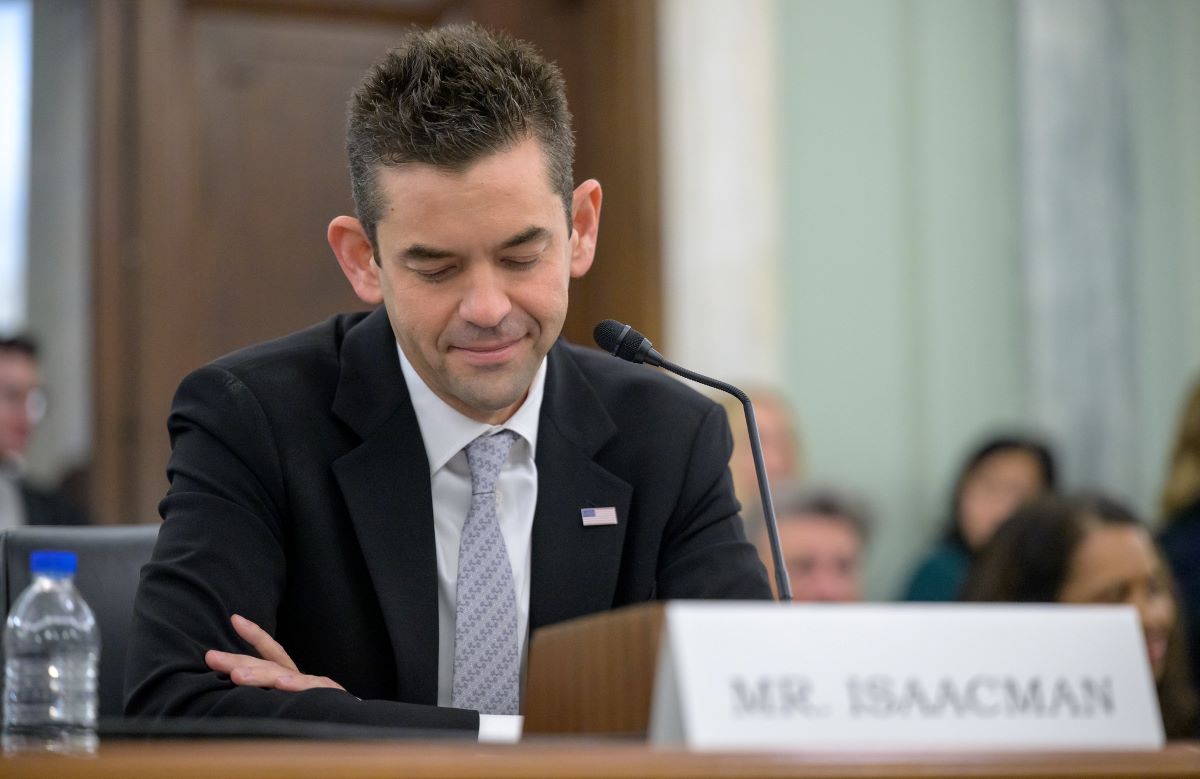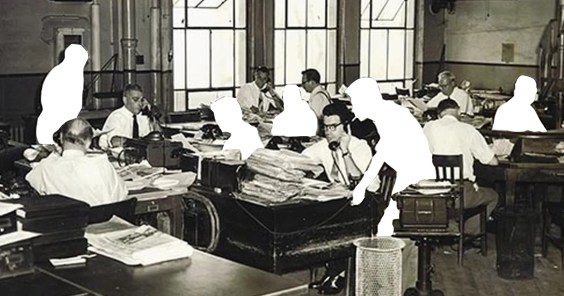
Car-share and bike-share services are making it easier to go without owning a car in American cities, but access to "shared-use" systems remains limited in communities of color compared to majority-white neighborhoods, according to a new analysis from the Shared Use Mobility Center [PDF].

SUMC developed a method to analyze which places have the most potential for car-share and bike-share usage across 27 American metros. Areas with relatively high transit ridership, low car ownership, and small blocks (which enhance walkability) are where share-use systems can be most useful, according to SUMC.
SUMC then compared these areas of "opportunity" for car-share and bike-share to areas where the services are actually available. In many cities, SUMC observed that dense low-income neighborhoods lack access to shared-use systems even though they have the necessary characteristics for success:
While they have been often passed over by private operators, these neighborhoods have many of the key qualities -- including high population density, transit access, and walkability -- needed to support shared-use systems. Additionally, the opportunity to scale up shared modes in these neighborhoods is especially compelling since they stand to profit most from the benefits of shared mobility, including reduced household transportation costs and increased connectivity to jobs and opportunities outside the immediate community.
A clear racial disparity is apparent in many cities. In Chicago, for instance, 72 percent of low-income, majority-white neighborhoods have access to shared-use systems, according to SUMC's analysis, but only 48 percent of low-income communities of color do. The disparity persists regardless of income levels. In well-off majority-white Chicago neighborhoods, 77 percent of households have access to car-share or bike-share, compared to just 49 percent in affluent majority-minority neighborhoods.
Not all cities have these disparities, but the pattern is alarmingly common.
"Much more must be done to reach these communities," the authors write, especially considering that shared-use systems can expand access to jobs and allow people to forego the high costs of car ownership.
SUMC developed a calculator to show how expanding shared-use systems, in tandem with high-quality transit, can reduce car ownership citywide. Cutting car ownership in all 27 cities by 10 percent, SUMC estimates, would save a combined $5 billion in personal vehicle expenses and reduce GHG emissions by 5 million metric tons annually.
Those benefits won't materialize if the services don't reach densely populated communities of color. Here's a look at SUMC's recommendations to expand access to these low-cost transportation options:
Start off right by embedding equitable access into the procurement process.
SUMC cites Philadelphia's Indego Bike Share as a model -- the request for proposals specifically stated that the system should serve a "diverse cross-section of central Philadelphia in terms of age, race, income, and education, and even offered explicitly defined geographic zones of operation."
Require shared-use operators to distribute access.
D.C. requires one-way car-share providers, whose members park on the street, to distribute their vehicles citywide, keeping at least one percent of the fleet in each ward. The city also mandates "a set number of carsharing vehicles" in low-income areas designated by the Department of Transportation.
For more recommendations, check out the full report.





